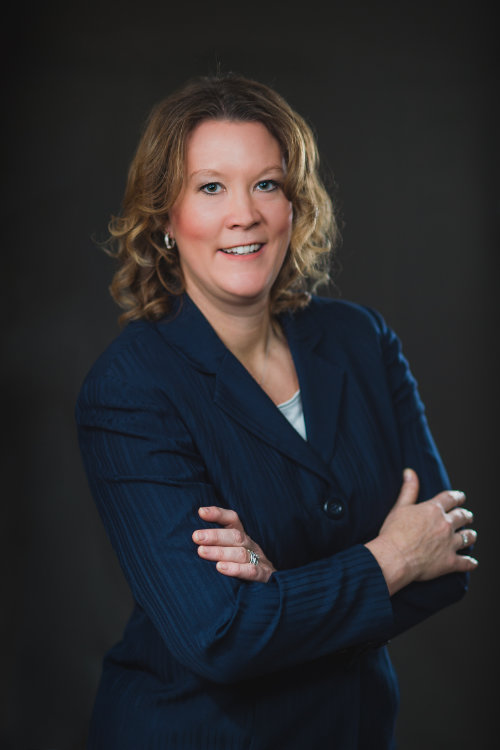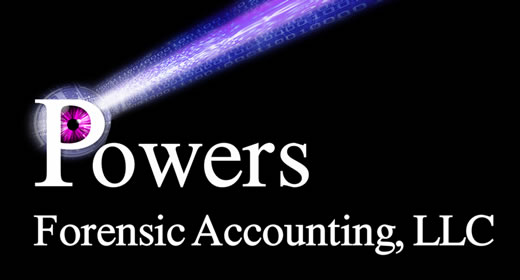What Benefit Can a Forensic Accountant Offer to the SIU Investigator?
By Chrissie A. Powers, CPA/CFF, CFE, CVA
What is forensic accounting, you ask? Forensic accounting provides an accounting analysis that is suitable to the court which will form the basis for discussion, debate and ultimately dispute resolution. Forensic accounting assignments vary and not all involve fraud. It is important to note there are various occasions where the SIU investigator could utilize a forensic accountant's specialized training. The three most common areas are: Lost Profits/Business Interruption Claims, Lost Wage Calculations and a Corporate Occupational Fraud Investigation.
Lost Profits or Business Interruption
Insurance companies often engage a forensic accountant to review the insurance claims for business interruption and lost profits. Most insurance policies quantify the loss incurred as the net income (loss) plus any ongoing expenses for the loss period. Owners of privately held companies have been known to unintentionally or even intentionally inflate their loss claims since they are in control of their books and records. Therefore, a forensic accountant is often retained to prepare the loss calculation or even review the calculation prepared by the insured, by validating the numbers provided as being reasonable and not fraudulently inflated.
There are four acceptable methods that can be used to calculate the business interruption loss:
- the "but for" method,
- the before and after method,
- the yardstick method (or comparable method), and
- the breach of contract method.
Before the complex analysis begins, the forensic accountant will need to become familiar with the business and its owners. During the analysis, the forensic accountant may become aware of red flags that could indicate fraud and possibly over value the loss.
I hear your next question already … What documents are important in this type of calculation? As you already know, each claim is different and depending on the type of business, the industry and even the cause of the loss, we may request a different set of records. However, we commonly ask for business tax returns, detailed general ledgers, year-to-date financial statements, etc. Ideally we would like to review records three to five years prior to the loss period, if available, in order to establish the company's trend.
Lost Wage Calculation
A lost wage calculation can be straight forward or complicated depending on the facts. One of the first issues to address in a lost wage calculation is whether or not the state the claim is in pays net wages or gross wages. Putting the simple case to the side, let's examine the complicated scenario. In a more complex lost wage calculation where the injured party is permanently disabled by the accident and never able to work again, the claimant's lost earnings capacity (capacity to earn money in the future) will need to be addressed. A forensic accountant is engaged to lay out the data of the future income and the proof of future losses. Factors considered are age, education, employment history, employer evaluations, job skills, physical or mental impairment, earnings history, economic lifestyle, etc. The forensic accountant then constructs a profile of past and present economic factors to begin to formulate the value the claimant will lose in future years. The factors include life expectancy tables, if he will never work again, earnings of others within claimant's educational and experience levels in claimant's occupation, inflation, social security, other benefits, and household service contribution. The future lost wages then must be present valued back to today. The forensic accountant then explains the calculation in layman's terms to the SIU investigator or adjuster.
What types of documents are provided from the claimant in a lost wage calculation? We would review W-2s, individual tax returns, current pay stubs, employment agreements, union handbooks, employee handbooks, retirement plans, medical bills, medical prognosis, etc. for periods preceding, during and post accident.
Occupational Fraud Investigations
The forensic accountant can assist the SIU investigator when the insured has been a victim or suspects corporate fraud. The accounting expertise is very critical in quantifying the fraudulent scheme and alleged perpetrators involved. The forensic accountant knows the lingo and terminology used by the company's management and is well versed in knowing what accounting records to obtain in order to pin point the problem. The common areas where fraud, waste, and abuse occur in an organization are cash disbursements, cash receipts, inventory theft, payroll schemes, billing schemes, corruption, etc. Occupational fraud schemes can be very difficult to detect and their average median length is 24 months. The smaller organizations tend to suffer a disproportionate amount of fraud loss due to their lack of segregation of duties.
Many forensic accountants are trained to assist on the investigation from start to finish. They are able to receive the tip regarding the suspected fraud, gather and analyze the data, assist in the interrogation of the alleged suspect, prepare the report and give expert testimony. Another added bonus is the ability to offer suggestions on improving the organization's internal controls to deter fraud from occurring again.
Information gathered and documents relied on vary greatly depending on the type of fraud scheme being perpetrated. However, these records could include, but are not limited to: corporate tax returns, payroll ledgers, payroll tax forms, bank statements, cancelled checks, credit card statements, e-mail correspondences, employee handbooks, detailed general ledgers, detailed journal entries, system override diagnostics, etc.
In summary, the forensic accountant's specialized skills can be utilized by SIU investigators in Lost Profits/Business Interruption Claims, Lost Wage calculations and a Corporate Occupational Fraud Investigation. So on the next investigation when it's time to "Crunch the Numbers," consider whether a forensic accountant can add value and speed to your investigation. If you have additional questions or concerns regarding forensic accounting, I can be reached at 614-745-5192.

Chrissie A. Powers, CPA/CFF, CFE, CVA
© 2026 Powers Forensic Accounting, LLC All Rights Reserved.
Website by Lemon Dog Project
